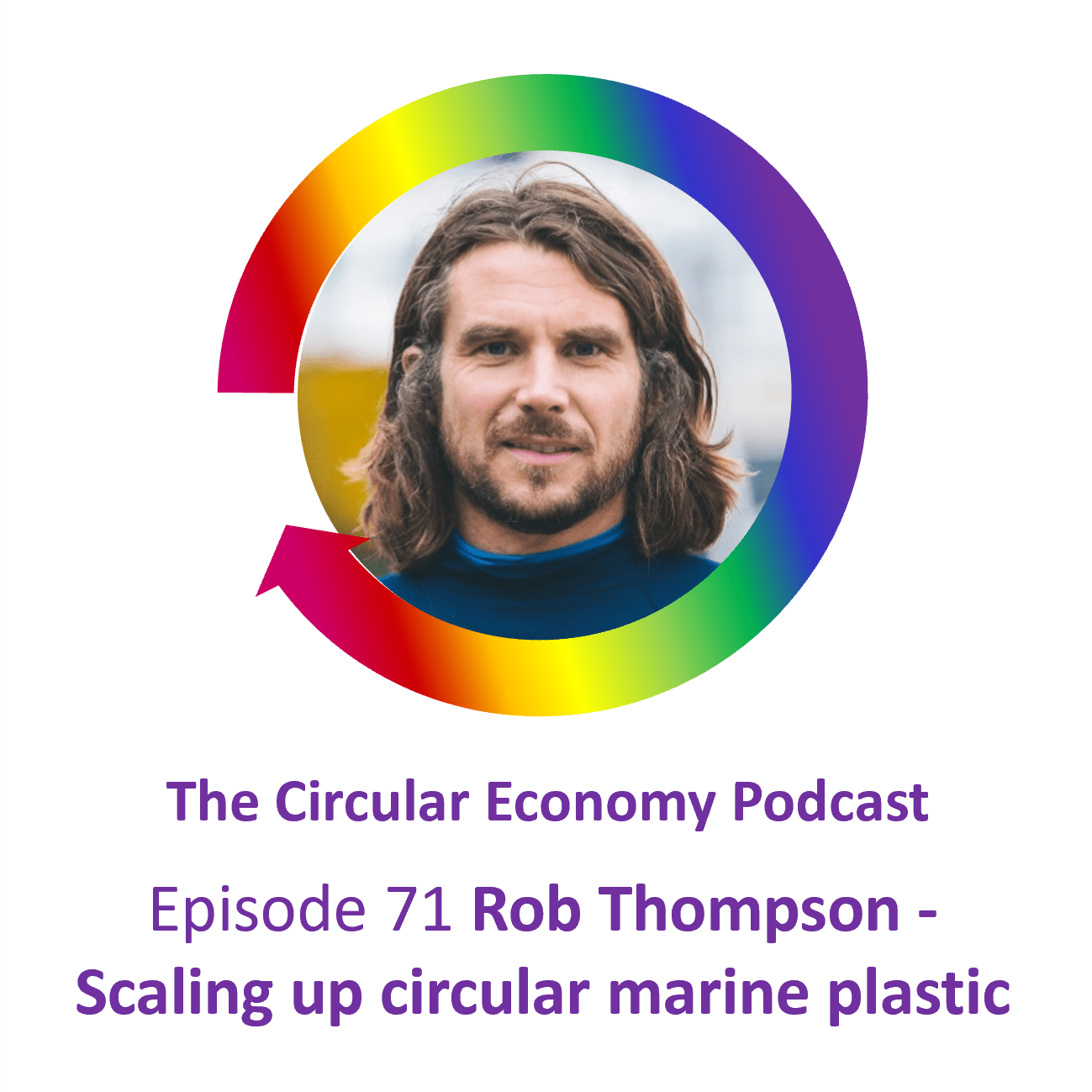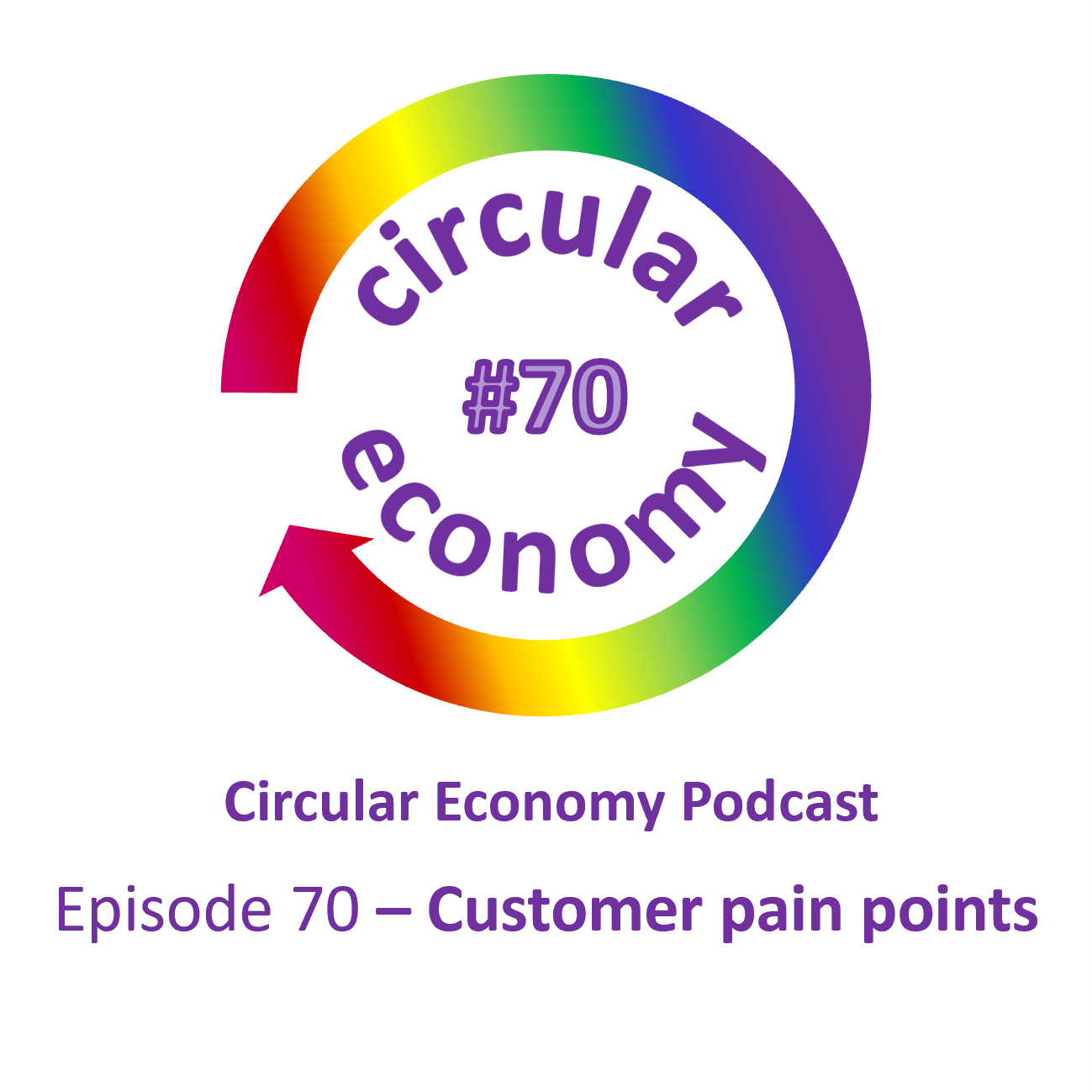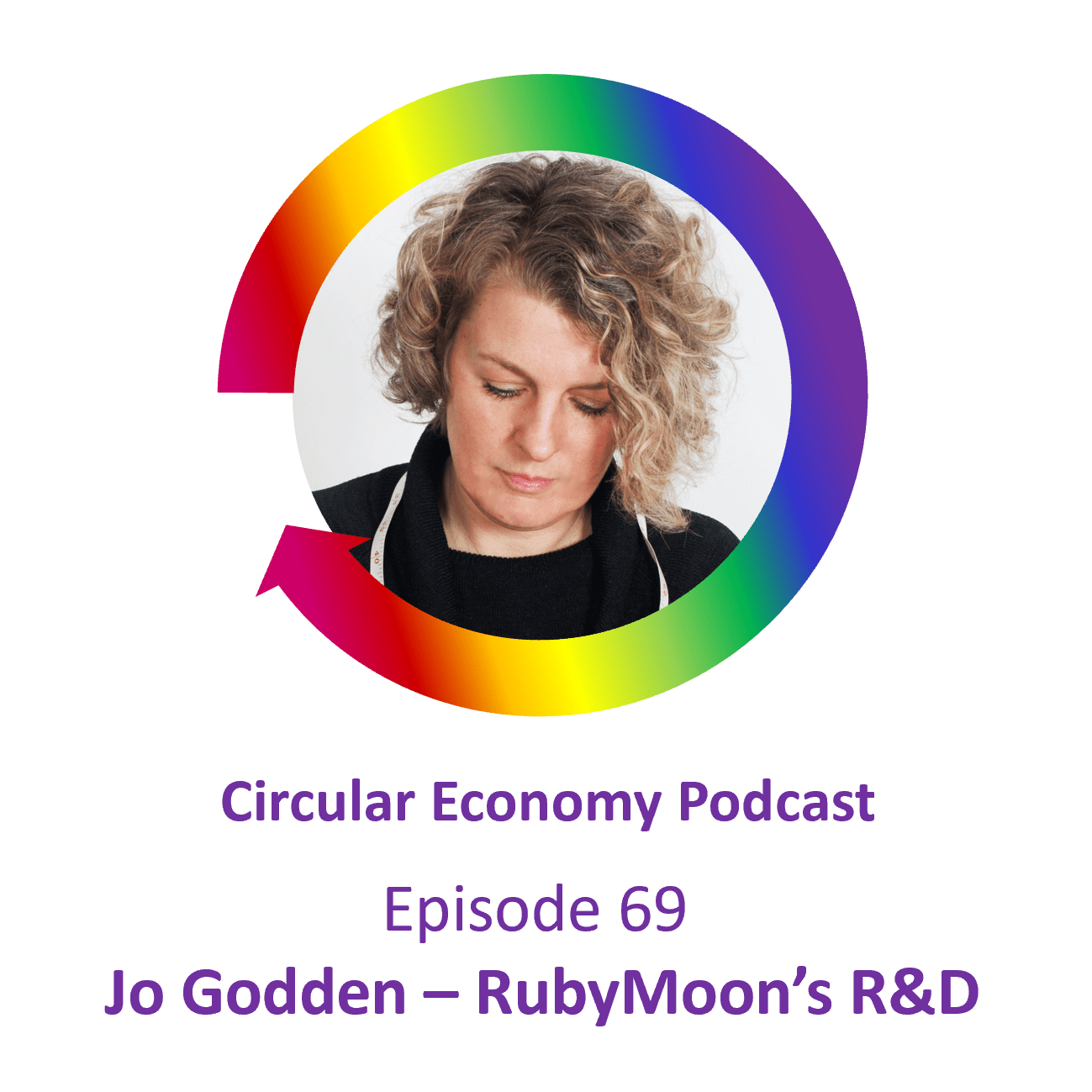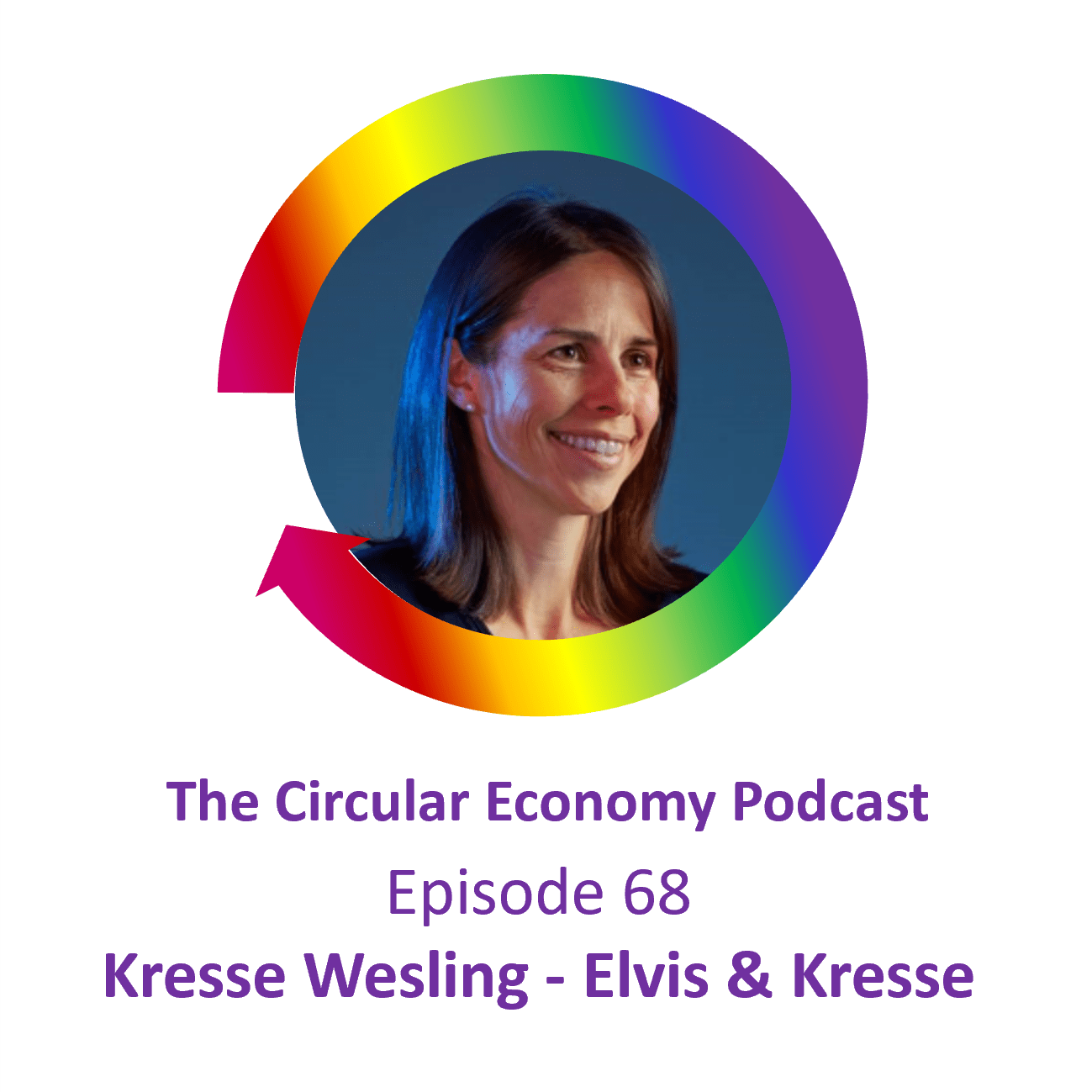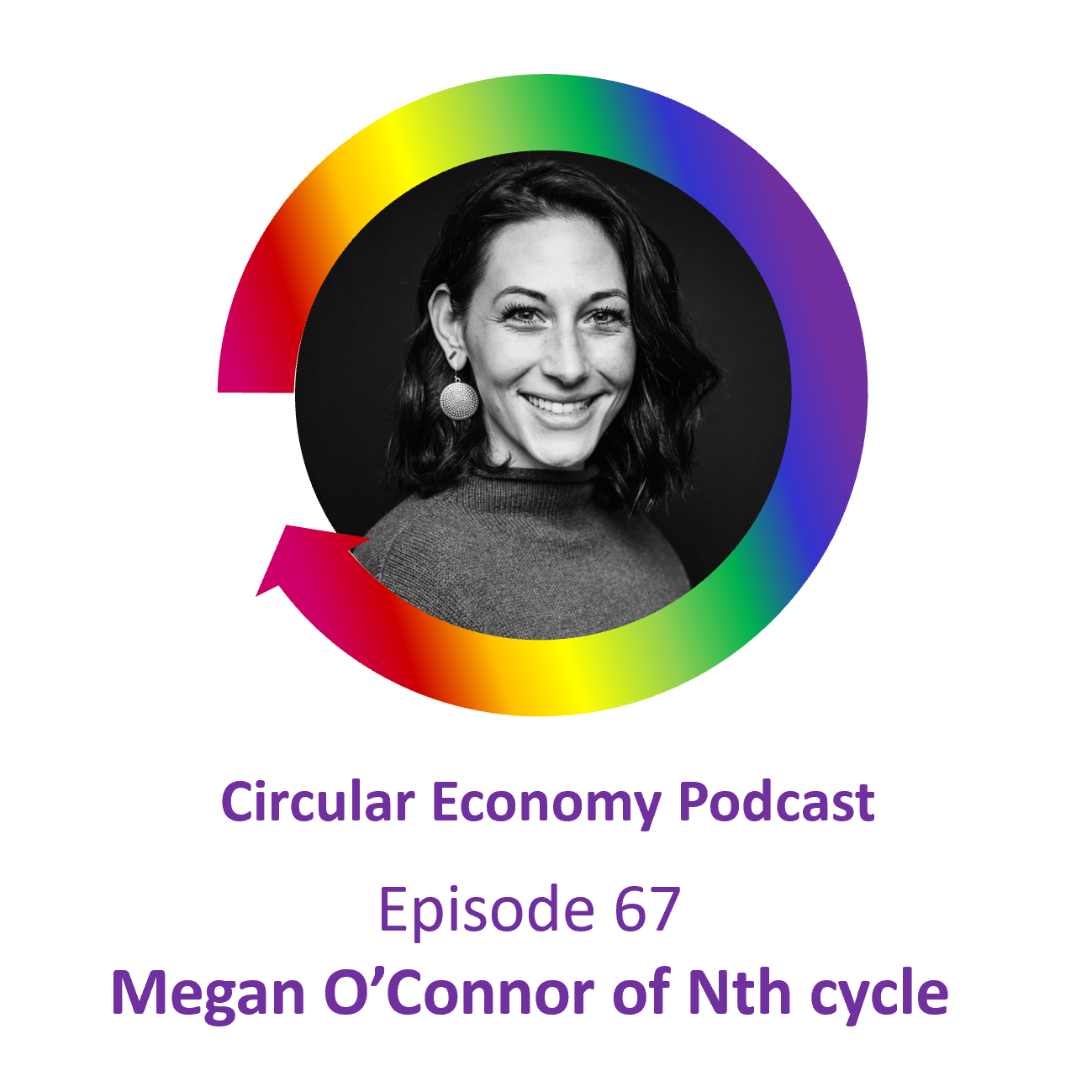Podcast: Play in new window | Download
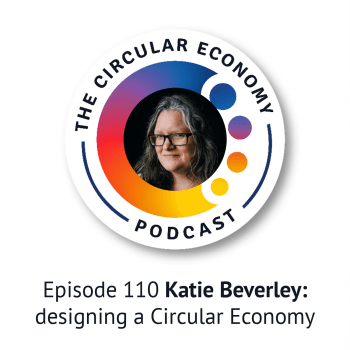
Today we’re catching up with Dr. Katie Beverley. Katie is a Senior Research Officer at PDR International Centre for Design and Research, at Cardiff Metropolitan University. She works with academic partners and the public and private sector, to embed ecodesign, circular economy and sustainable thinking into products and services.
Back in Episode 5, Katie helped us understand more about ecodesign. She describes herself as a ‘critical friend’ of the circular economy, and that feels like a great starting point to explore what’s going well, and what isn’t.
Katie describes herself as a ‘critical friend’ of the circular economy, and that feels like a great starting point to explore what’s going well, and what isn’t.
First, Catherine Weetman sets the scene. What’s wrong with the current system, from the point of view of business and society? Where might organizations be missing out on value, and why? Are people downplaying the risks of carrying on with business as usual? Why do we need a different approach?
Podcast host Catherine Weetman is a circular economy business advisor, workshop facilitator, speaker and writer. Her award-winning book: A Circular Economy Handbook: How to Build a More Resilient, Competitive and Sustainable Business includes lots of practical examples and tips on getting started. Catherine founded Rethink Global in 2013, to help businesses use circular, sustainable approaches to build a better business (and a better world).
Stay in touch for free insights and updates…
Read on for a summary of the podcast and links to the people, organisations and other resources we mention.
Don’t forget, you can subscribe to the podcast series on iTunes, Google Podcasts, PlayerFM, Spotify, TuneIn, or search for “circular economy” in your favourite podcast app. Stay in touch to get free insights and updates, direct to your inbox…
You can also use our interactive, searchable podcast index to find episodes by sector, by region or by circular strategy. Plus, there is now a regular Circular Economy Podcast newsletter, so you get the latest episode show notes and links delivered to your inbox on Sunday morning, each fortnight. The newsletter includes a link to the episode page on our website, with an audio player. You can subscribe by clicking this link to update your preferences.
Links we mention in the episode:
- A Circular Economy Handbook: How to Build a More Resilient, Competitive and Sustainable Business – buy from any good bookseller, or direct from the publisher Kogan Page, which ships worldwide (free shipping to UK and US) and you can use discount code CIRCL20 to get 20% off. It’s available in paperback, ebook and Kindle. If you buy it from online sources, make sure you choose the new edition with an orange cover!
- Sign up to get the podcast player and shownotes for each new episode emailed to your inbox
- Katie Beverley on LinkedIn https://www.linkedin.com/in/katie-beverley-a53576a6/
- Katie Beverley in Episode 5: Ecodesign expert Katie Beverley of PDR International Centre for Design and Research tells us how user-centred design and systems thinking helps to design better circular economy and sustainable solutions. https://www.rethinkglobal.info/episode-5-katie-beverley-ecodesign/
- PDR International Centre for Design and Research https://www.pdr-design.com/
Books and people mentioned
- The Purpose Upgrade: Change The World To Save Your Business, by Paul Skinner https://www.purposeupgrade.com/
- Regeneration: Ending the Climate Crisis in One Generation, by Paul Hawken https://paulhawken.com/
Guest bio
Katie Beverley is a Senior Research Officer in Ecodesign at PDR, the International Centre for Design Research in Cardiff, Wales. Katie undertakes research, knowledge transfer activities and commercial projects which require the application of design to minimise environmental impact, increase resource efficiency and exploit circular economy opportunities.
Katie holds a PhD in chemistry, which proves useful in facilitating discussions between designers, scientists and technologist, and for understanding opportunities for new materials in the circular economy.
She has worked with policymakers, educators and businesses (including furniture, automotive, energy storage, electronics, sports equipment, fashion and textiles) both in Wales and internationally.
Playlist: getting started with the circular economy…
Want to know more about the what the circular economy really is, and how it can help your business? Here’s a playlist to help you get to grips with the concept, how it creates value, and the common myths (spoiler alert – it’s much more than recycling!)
- #1 What is the circular economy: A quick intro to explain what the circular economy is and why it’s important. We explore how it helps create better products and services, and at the same time helps to make a better world. I break it down into my 5 circular economy components, helping you think about each part of your business.
- #2 The linear economy and your risk checklist: We dig a bit deeper into the way we do business now, the linear economy, and why that’s creating problems for business, society and our living planet. Also, we’ll look at the risks that emerge from those big-picture issues, and how they might affect your organisation.
- #90 Does circular mean it’s sustainable? Catherine Weetman is worried that companies are using circular economy solutions to grow their business (and their footprints).
- #101 Circular is better for people, planet and profit! How three simple strategies can help you get started with circular and regenerative solutions that are better for people, planet and profit.
- #120 Priorities are changing: people find life is better when we care for and share things – circular economy strategies make that better for business, too.
And here’s Catherine’s guide: What is the circular economy?
Want to dig deeper?
Why not buy Catherine’s award-winning book, A Circular Economy Handbook: How to Build a More Resilient, Competitive and Sustainable Business. This comprehensive guide uses a bottom-up, practical approach, and includes hundreds of real examples from around the world, to help you really ‘get’ the circular economy. Even better, you’ll be inspired with ideas to make your own business more competitive, resilient and sustainable.
Please let us know what you think of the podcast – and we’d love it if you could leave us a review on iTunes, or wherever you find your podcasts. Or send us an email…
Podcast music
Thanks to Belinda O’Hooley and Heidi Tidow, otherwise known as the brilliant, inventive and generous folk duo, O’Hooley & Tidow for allowing me to use the instrumentals from the live version of Summat’s Brewin’ as music for the podcast. You can find the whole track (inspired by the Copper Family song “Oh Good Ale”) on their album, also called Summat’s Brewin’. Or, follow them on Twitter.
